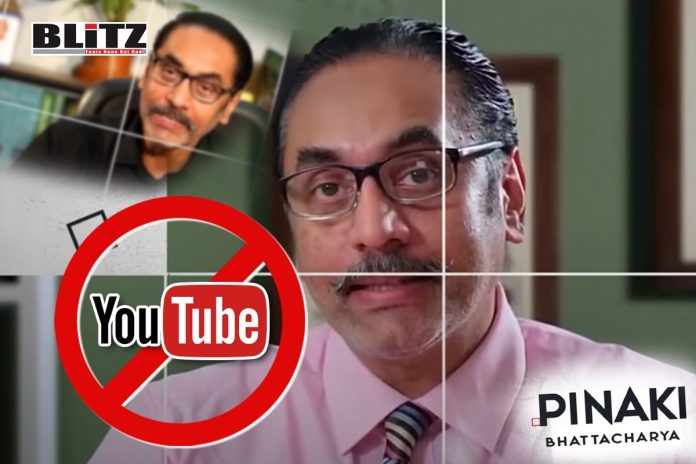YouTube faces increasing pressure to take action against Pinaki Bhattacharya, an individual accused of spreading hatred and violent extremism against India and Hindus. With over 1.7 million followers, Bhattacharya has utilized the platform to disseminate propaganda, incite violence, and target large business houses.
Operating from France, Bhattacharya is allegedly orchestrating plans for terrorist attacks on Indian diplomatic missions and Bangladeshi businesses selling Indian products. Reports suggest that he is receiving funding from the Pakistani spy agency Inter-Service Intelligence (ISI) and various multinational corporations, further complicating the situation.
YouTube’s community standards explicitly prohibit harassment, cyberbullying, harmful content, and hate speech. However, Bhattacharya’s continued presence on the platform raises questions about the effectiveness of YouTube’s moderation policies and enforcement mechanisms.
Given India’s significant user base and the platform’s reliance on advertising revenue from the country, YouTube is under immense pressure to take decisive action against individuals like Bhattacharya who misuse its platform to spread divisive and dangerous ideologies.
The situation underscores the importance of robust content moderation measures and collaboration with law enforcement agencies to address online extremism effectively. Failure to act swiftly and decisively against such individuals not only undermines YouTube’s credibility but also poses a serious threat to public safety and communal harmony.
YouTube must prioritize the safety and well-being of its users and take proactive steps to remove content that incites violence, promotes hate speech, or poses a threat to national security. By enforcing its community standards rigorously and cooperating with relevant authorities, YouTube can play a pivotal role in combating online extremism and fostering a safer digital environment for all.
Pinaki Bhattacharya’s YouTube content blatantly violates the platform’s policies on harassment, cyberbullying, and hate speech. Despite clear evidence of his harmful activities, YouTube, along with other social media giants like Meta (Facebook) and X (formerly Twitter), have failed to take decisive action against him.
Bhattacharya’s channel is filled with prolonged insults, slurs, and hate speech targeting various groups based on ethnicity, religion, and nationality. His content spreads vitriol against India, Hindus, and Indian products, contributing to a toxic online environment.
The question arises: why have YouTube and other platforms allowed Bhattacharya to continue his notorious activities unchecked? Despite community guidelines explicitly prohibiting such behavior, Bhattacharya remains active, raising concerns about the efficacy of content moderation measures.
Furthermore, Bhattacharya’s actions pose a serious threat to public safety and communal harmony. By inciting violence and spreading hatred, he not only violates platform policies but also undermines societal cohesion.
It is imperative for YouTube, Meta, and X to take immediate action against Bhattacharya to prevent further harm. Additionally, authorities in New Delhi and Indian missions abroad must address this issue seriously and collaborate with platform owners to ensure accountability and enforcement of relevant laws.
In the face of escalating online extremism and hate speech, concerted efforts are needed from both tech companies and governments to safeguard users and promote a safer digital environment. Failure to address this issue promptly could have far-reaching consequences for societal harmony and online discourse.
Who is Pinaki Bhattacharya?
Pinaki Bhattacharya faced familial rejection after leaving Hinduism to embrace Islam under the influence of Tablighi Jamaat. His father, Shyamal Bhattacharya, a school teacher and writer, severed ties with him due to his religious conversion. Born in Bogra district, Bangladesh, Pinaki graduated from Rajshahi Medical College in 1992, known for its association with Jamaat-e-Islami.
His wife, also a physician, distanced herself upon learning of his ties with Islamist groups and the ISI. In Bangladesh, Pinaki operated a pharmaceutical factory, purportedly producing life-saving drugs but was involved in manufacturing illicit substances like ‘Yaba’ tablets. These illegal activities led him to flee to France, where he falsely claimed political persecution by the Awami League. Exploiting his asylum status, he continued his illegal activities, coercing female staff into sexual relations while running contraband medicine operations.




